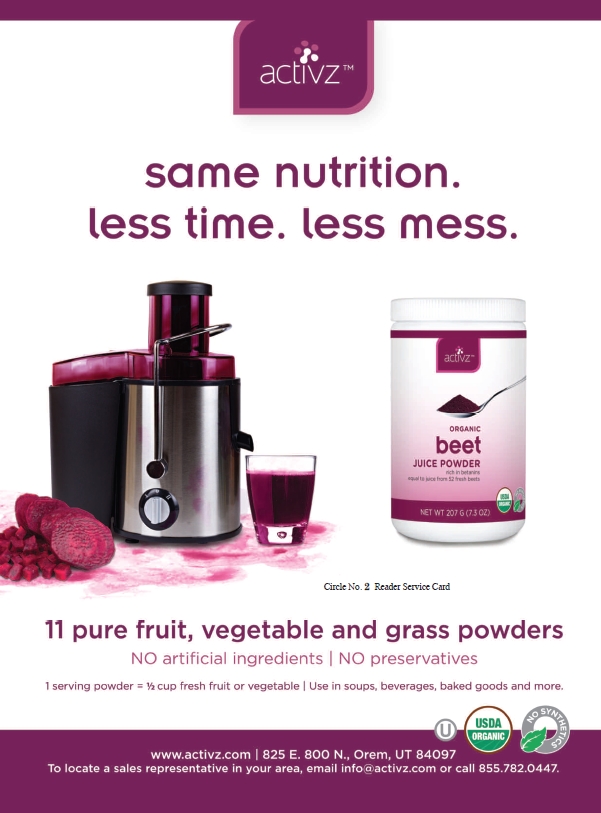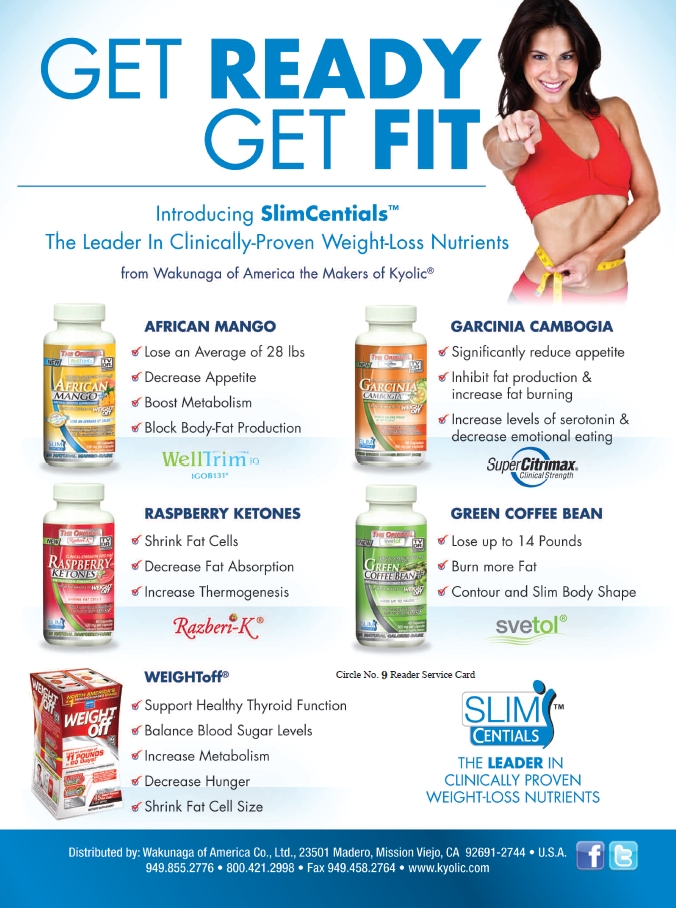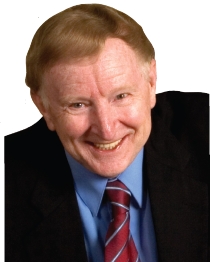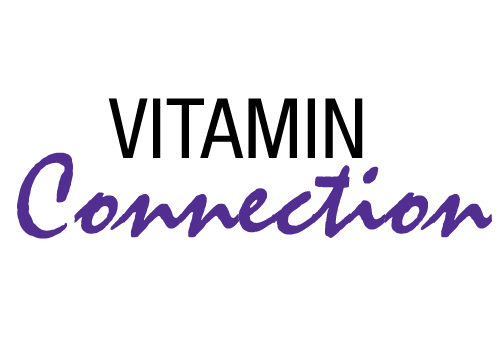How can parents learn what they need to know about the most common and worrisome issues of infancy and early childhood, including colic, diarrhea, feeding problems, ear infections, colds, flu, fever, allergies and over-the-counter drugs? How can they learn about the nutrients their toddlers need? Much of the information available online and even from “official” sources is questionable. Fortunately, pediatrician Ralph K. Campbell, M.D., and nutritionist/educator Andrew W. Saul, Ph.D., have published a new book that helps address these problems.
We chatted recently with both doctors. In June 2012, we spoke with Dr. Campbell about children’s health, and we discussed many topics with Dr. Saul as part of his outstanding series of Vitamin Cure books.
Dr. Campbell is a lifelong advocate of nutritional medicine. He attended medical school at Yale University, where he received his M.D. in 1954. He completed his residency in pediatrics at Los Angeles Children’s Hospital. Dr. Campbell went on to maintain a large private pediatric practice in Southern California for 13 years and transitioned to Polson, MT, in 1970. He conducted well-child clinics for the Salish Kootenai reservation, established the Lake County Health Department, had a private pediatric practice and served as a county jail doctor for 13 years. His wide-ranging experience continues to invigorate his steady commitment to nutritionally oriented medicine, which has strengthened throughout numerous cultural changes in the medical community, even when he has had to make a great many efforts to buck the system.
Andrew W. Saul, Ph.D., has taught every  grade there is, from first to post-doctoral, including nine years teaching for the State University of New York. He has published over 180 reviews and editorials in peer-reviewed publications. Dr. Saul is the author of Doctor Yourself and Fire Your Doctor!, and co-author of Orthomolecular Medicine for Everyone; The Vitamin Cure for Alcoholism; Vitamin C: The Real Story; I Have Cancer: What Should I Do?; Hospitals and Health; The Vitamin Cure for Depression; Vegetable Juicing for Everyone; Niacin: The Real Story and, with Dr. Campbell, The Vitamin Cure for Children’s Health Problems. All are available from Basic Health Publications.
grade there is, from first to post-doctoral, including nine years teaching for the State University of New York. He has published over 180 reviews and editorials in peer-reviewed publications. Dr. Saul is the author of Doctor Yourself and Fire Your Doctor!, and co-author of Orthomolecular Medicine for Everyone; The Vitamin Cure for Alcoholism; Vitamin C: The Real Story; I Have Cancer: What Should I Do?; Hospitals and Health; The Vitamin Cure for Depression; Vegetable Juicing for Everyone; Niacin: The Real Story and, with Dr. Campbell, The Vitamin Cure for Children’s Health Problems. All are available from Basic Health Publications.
Dr. Saul is on the editorial board of the Journal of Orthomolecular Medicine, is editor-in-chief of the Orthomolecular Medicine News service, and is featured in the documentary film Food Matters. In 2013, Dr. Saul was inducted into the Orthomolecular Medicine Hall of Fame. His noncommercial, natural-healing Web site is www.DoctorYourself.com.
Passwater: Your new book, The Vitamin Cure for Infant and Toddler Health Problems, very favorably discusses nutrient therapy and is sharply critical of drug therapy.
Campbell: That is right. This information is needed, and badly. Parents need to know what their options are, especially their drugless options. Are there any actively practicing orthomolecular pediatricians? I know of none.
Passwater: How bad is our healthcare system today?
Campbell: There are pitfalls and terrible deficiencies in the way medical care is rendered in this country. Whistle-blowers, like me, have made some inroads, but not enough. I am sickened by reports of what I would consider malpractice that don’t anger anyone else. I cannot abide by those who say, “Just work within the system and don’t make trouble, Doctor.” We are locked into an insurance system that determines what doctors get paid for, and therefore what doctors can do.
Passwater: For example?
 Campbell: For several years now, pediatricians (or family practice physicians functioning as pediatricians) have been admonished to limit the use of a radiating MRI for evaluating headaches in children. But rather than take the time for a complete evaluation, which includes conducting a complete physical exam and gathering pertinent history, many patients go straight for the MRI. Their reasoning seems to be, if you can do it, then do it.
Campbell: For several years now, pediatricians (or family practice physicians functioning as pediatricians) have been admonished to limit the use of a radiating MRI for evaluating headaches in children. But rather than take the time for a complete evaluation, which includes conducting a complete physical exam and gathering pertinent history, many patients go straight for the MRI. Their reasoning seems to be, if you can do it, then do it.
Doctors succumb to parental pressure as well as insurance company pressure. Doctors also are subjected to parental pressure when it comes to deciding on the necessity for an antibiotic. That means overprescription. We are in a heap of trouble from this.
Passwater: What about the doctors themselves?
Campbell: I don’t let doctors off the hook for these errors or for prescribing psychotropic drugs that are both worthless and dangerous to children. Doctors’ scheduled time limitations don’t allow for anything but sloppy work-ups. One sensible critic, who was concerned about labeling obesity a “disease,” said insurance companies must determine a way for doctors to receive reimbursement for discussions with obese individuals.
Currently, a doctor’s appointment lasts just eight to 15 minutes on average, whether it is a new patient visit, a well patient visit or a follow-up appointment. This brief time period poses severe restrictions on patient education. Since health education is not happening in doctors’ offices, it must happen at home, like home schooling.
Passwater: Any chance medical schools will address this?
Campbell: There have been ongoing attempts to encourage more medical school graduates to go into primary medicine, rather than become specialists. But, specialists make far more money. Medical school graduates have huge loans to pay off. And, they are not thrilled about the low pay or the limited doctor–patient relationship potential associated with primary care practice. If you can’t make money or have a practice that provides the satisfaction of truly helping people get well and stay that way, what incentive is left?
Passwater: You seem concerned about widespread cultural changes that have affected the practice of medicine and medical education.
Campbell: I truly am, yes. Formerly, patients  received health information from their doctors. In the old days, pediatricians, especially, actually spent time assessing health—including nutrition—and gave a complete physical examination. A trusting doctor–patient relationship ensued, thus enabling the doctor to learn from his patients as well.
received health information from their doctors. In the old days, pediatricians, especially, actually spent time assessing health—including nutrition—and gave a complete physical examination. A trusting doctor–patient relationship ensued, thus enabling the doctor to learn from his patients as well.
Currently, there is almost a complete emphasis on medicines and procedures, such as immunizations, that fit into an assembly-line, time-limited visit. Parents are also time-limited by their own lifestyles and obligations. In my experience, one could exchange ideas more easily with “stay-at-home” moms. Also, formerly, there were fewer junk foods to deal with. Soda pop was not part of the “daily bread”; it was a rare treat. Now, it is practically a food group.
Passwater: Do you recommend refusing all immunizations?
Campbell: No. Some immunizations are good and essential. The problem is that there are too many, far too many.
There needs to be more openness on the part of those that set medical guidelines, rules, policies and procedures (e.g., the U.S. Food and Drug Administration [FDA], the American Academy of Pediatrics or the Centers for Disease Control and Prevention [CDC]) concerning the drawbacks to some vaccinations. More studies are needed to assess the safety of giving infants such heavy loads of antigens at a single doctor visit. Some of the combined vaccines should be broken up. There need to be more studies of the appropriate age to administer them. In other countries, the counterparts of FDA, CDC and the like are far ahead of us.
Parents need to have honest, accurate information in order to determine the safety and necessity of any procedure for their infant or child. They need to be armed with information and be willing to discuss their views with the doctor without the physician feeling threatened, running out of time or being second-guessed by an insurance company. Dr. Saul and I wrote The Vitamin Cure for Infant and Toddler Health Problems to remedy this immediate need.
Passwater: Dr. Saul, what are your thoughts?
 Saul: I wish I had had Dr. Campbell as my children’s doctor when I was a young parent. The next-best thing has been to learn so much from him and other expert orthomolecular physicians. I also learned a lot of very practical techniques from raising my own children. Paramount among these would be high-dose vitamin C therapy for very young children. Vitamin C is safe and versatile. Used correctly, it functions as a strikingly effective antiviral, antihistamine, antitoxin and antipyretic, that is, it lowers fever. If you think that list is too long to be scientific, or just too good to be true, our book will likely change your views. As for me, my kids, from infancy into college, never had a single dose of any antibiotic, ever. Not one.
Saul: I wish I had had Dr. Campbell as my children’s doctor when I was a young parent. The next-best thing has been to learn so much from him and other expert orthomolecular physicians. I also learned a lot of very practical techniques from raising my own children. Paramount among these would be high-dose vitamin C therapy for very young children. Vitamin C is safe and versatile. Used correctly, it functions as a strikingly effective antiviral, antihistamine, antitoxin and antipyretic, that is, it lowers fever. If you think that list is too long to be scientific, or just too good to be true, our book will likely change your views. As for me, my kids, from infancy into college, never had a single dose of any antibiotic, ever. Not one.
Passwater: Placebo effect? Luck?
Saul: Maybe, but not likely. The medical literature has literally 75 years of careful clinical studies demonstrating that vitamin C prevents, and cures, a wide variety of illnesses. Its utility is spectacular in children. The Vitamin Cure for Infant and Toddler Health Problems contains very detailed, very practical information showing exactly how parents can safely and successfully employ vitamin C. It is fair to say that this information is not going to be readily forthcoming from your child’s present pediatrician.
Passwater: I am a strong advocate of vitamin C therapy, and I agree that research supports its use. What else is in the book?
Saul: We discuss the most common as well as the most troubling problems of infancy and early childhood, including colic, diarrhea, ear infections, colds, flu, fever and allergies as well as quite a few additional topics like feeding, checkups and over-the-counter drugs. I recommend that parents read this book before their next contact with their pediatrician. Go to your doctor prepared, and go in informed. And in my experience, you will not need to go as often!
Passwater: Thank you both for chatting with us and for your books. They  will help many people.
will help many people.
The Vitamin Cure for Infants and Toddler Health is published by Basic Health Publications of Laguna Beach, CA, and is available through industry book distributors or through major online sellers. Also, readers can find additional information on this topic on Dr. Saul’s Web site,
www.DoctorYourself.com. WF
Dr. Richard Passwater is the author of more than 45 books and 500 articles on nutrition. Dr. Passwater has been WholeFoods Magazine’s science editor and author of this column since 1984. More information is available on his Web site, www.drpasswater.com.
Published in WholeFoods Magazine, January 2014










